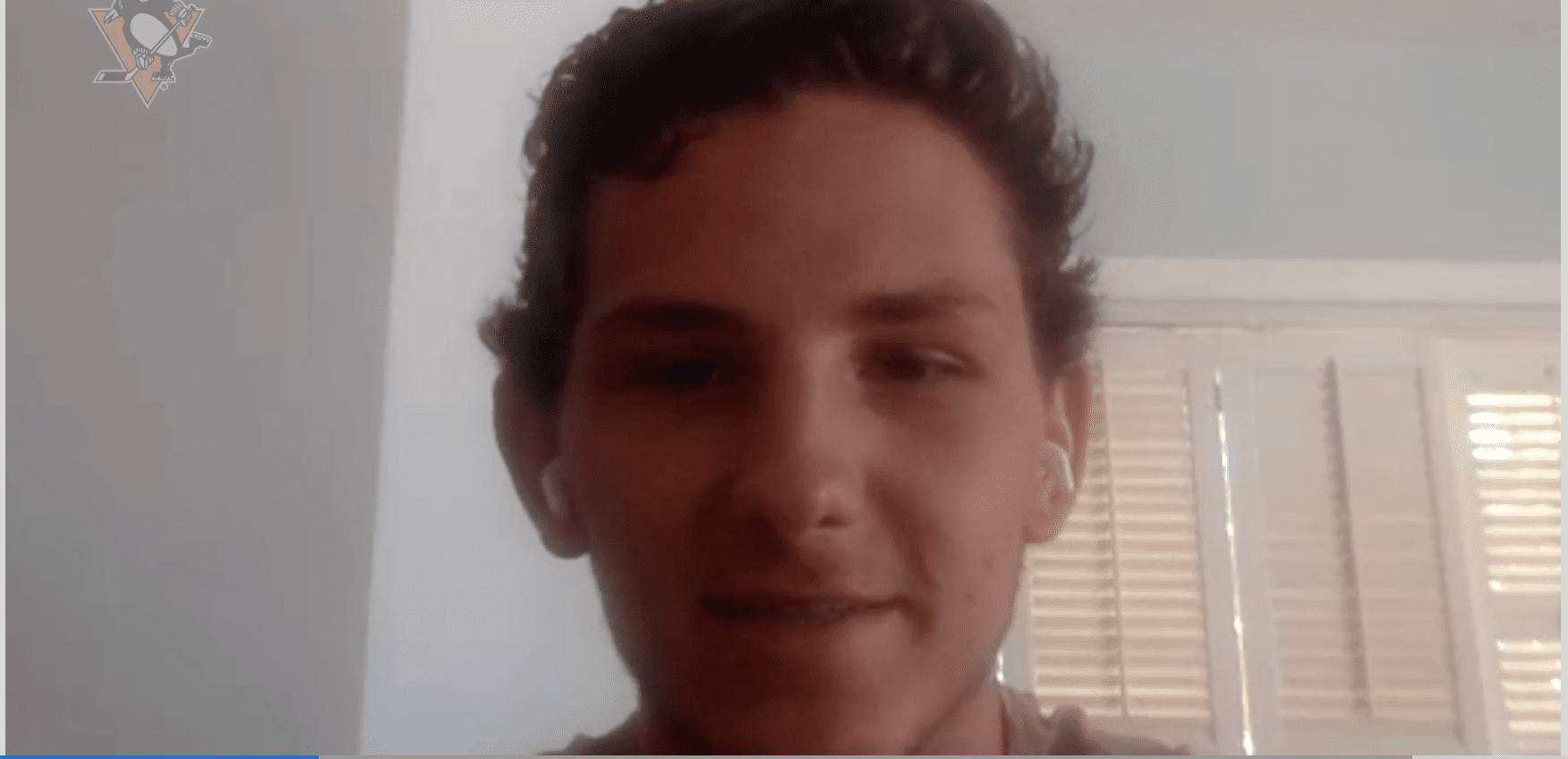Penguins
John Marino: ‘Pinch Yourself Moments’, Happy with Rookie Year

Pittsburgh Penguins defenseman John Marino was the Cinderella story of the Pittsburgh Penguins season. The Penguins acquired Marino last summer from Edmonton for a conditional sixth-round pick. PHN has been told scout Kevin Stevens raved about Marino after scouting him at Harvard, but no one except Marino expected him to crack the Penguins lineup in October.
By signing Marino the Penguins forfeited their sixth-round pick this year, but it’s a trade they’ll happily take. This season, Marino has climbed into the Penguins top-four defensive pairings and acquited himself very well. He has not only impressed teammates and the Penguins organization, but he also took the time-honored NHL tradition of playing through injury when he played with a broken cheekbone and wore a full-face shield before the coronavirus pause.
Tuesday afternoon, Marino conducted a video chat with pre-selected writers in which he discussed his rookie year, the transition from college hockey to the NHL and training without being on the ice.
Was there a ‘Welcome to the NHL moment?’
Just playing against those big-time guys for the first time, whether it be guys like Patrick Kane, McDavid, any of those guys. So the first couple of games of the season, each one was a pinch yourself moment. Overall, I think it went pretty well. It’s a learning process, and each game is still a learning process; talking with the coaching staff, going over the little things just to kind of round out my game.
Physically, how tough was the transition?
Bumps and bruises here and there. Definitely some, I wouldn’t say injuries, but nagging stuff you don’t experience until you don’t really experience until you play the full NHL season; you don’t really think about them in college, where you only play on weekends, then you have the whole week to rest up your body whereas there’s not as much rest time in the NHL.
It’s all about preparation, nutrition and doing those little things.
What surprised Marino about the transition, good and bad?
It’s a much higher pace of play. Everyone can contribute, everyone is skilled, and everyone can make a play. So you always have to be aware. Every game is a battle. Not that you can take games off, not that you take games off in college, but if you’re going into a game where your team should win the game, you can take a step back, but in the NHL you can’t take a step back. Every shift, you have to compete. You have to be ready for it, and that was eye-opening for sure.
What would Marino have done if he stayed in college for his senior year at Harvard?
I was a psychology major with a secondary in economics, so (I would have taken classes) along the lines of that, but summer school is online, so hopefully I’ll be able to take some classes and catch up on my credits and take as many as I can to finish. (I want to) get that out of the way while I can because talking with some of the guys on the team who had to go back and finish to get their degree, the longer you wait, the harder it is. So, the best strategy is to get it out of the way while you can and worry about the rest later.
Which guys helped him adjust the most?
There’s a lot of experience in the room. It’s hard to pinpoint one guy, but I’ll stick with the D corps and say pretty much everyone on the D corps helped me with the transition. Whether it be the younger guys like (Marcus) Pettersson, who was very vocal–I was always talking to him about my game and his game and how we played together–to someone who has been around a lot longer, like (Brian) Dumoulin, (Justin) Schultz, (Kris) Letang, (Jack) Johnson. They’re all just great guys. They help you with the little things. Obviously, it’s a big transition going from college hockey to playing that many games and dealing with the season.”
You know, if you have a bad game, or make a bad play, they just say ‘shrug it off, keep playing your game and don’t worry about it.’ They were great the whole year and I think that made a big difference.
Like other players, Marino has been in contact with the Penguins trainers and sports science staff. The Penguins have helped Marino create a workout with the available tools.
Since Marino his holed up with family in Hilton Head, SC, he said he gets to be outdoors to go for a run or a bike ride, and even play tennis; he’s trying to be as active as possible.
Did the coaches bring him along slowly or did they let him learn on the fly?
I’d say a little bit of both. In the beginning, it was a little more sheltered, but they gained a little more trust with me, they put me out there and I think I was able to take advantage of the opportunity. It was definitely a learning process and I have a lot of stuff to figure out, but I think the biggest thing was the coaching staff putting their trust in me, and being able to take advantage of (the opportunity).












